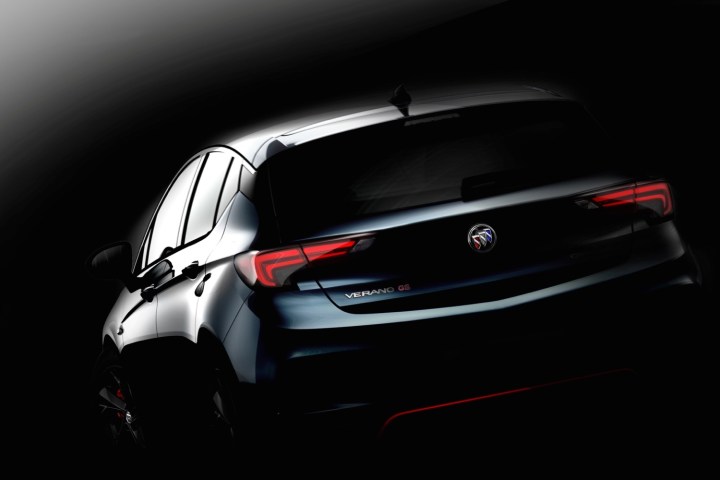
There’s already been a report that the recently-unveiled 2016 Opel Astra could come to the U.S. as a Buick, and some news out of China lends credence to that theory. GM is planning to sell an Astra hatchback there badged as a Buick Verano. Could that model make it to the U.S. as well?
The car in GM’s teaser photo looks basically identical to the European Astra, except with Buick badging, and will go on sale in China later this year. There will be both base Verano Hatchback and sporty Verano GS versions. The Astra-based hatchback will likely differ somewhat from the Chinese-market Verano sedan unveiled at the 2015 Shanghai Motor Show earlier this year, although both cars ride on the same platform.
Verano is also of course the name of the compact sedan Buick currently sells in the U.S. While its platform mate the Chevrolet Cruze gets a complete redesign for the 2016 model year, GM is holding off on launching a redesigned Verano on this side of the Pacific. It took a similar approach with the Cruze, unveiling a Chinese-market version roughly a year before the U.S.-spec model appeared.
GM has already confirmed a Cruze hatchback, but has not said anything officially about future plans for the Verano. It could import the Chinese-market Verano sedan, or sell a lineup of rebadged Astra variants, but likely not both. Using the same name for multiple body styles, but with different styling and mechanicals, would be unusual.
The Verano hatchback isn’t the only Chinese Buick with a chance of being sold in the U.S. Buick is widely expected to import the Envision crossover that’s already on sale there, which would help plug the gap in its lineup between the subcompact Encore and the large Enclave.
Editors' Recommendations
- VinFast is bringing a mini electric SUV to the U.S., and maybe a pickup, too
- The OnePlus Watch Harry Potter Edition is here but you can’t get it in the U.S.
- DJI added to U.S. trade blacklist. Will drone sales be grounded?
- U.S. restricts trade with China’s largest chipmaker due to alleged military ties
- Trump reportedly still wants U.S. government to get paid in proposed TikTok sale

